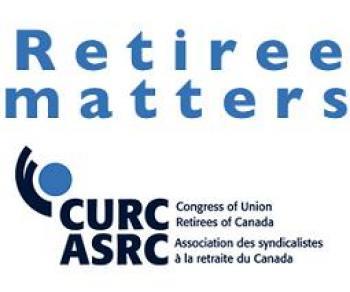Change the conversation, support rabble.ca today.
In New Brunswick, the proportion of seniors increased by 15 per cent over the last five years, while the number of children decreased by four per cent. Fifteen years from now, over 25 per cent of the population of New Brunswick will be 65 years of age or older. It’s a similar story across the country. With an aging population, it is more important than ever to have public services that will allow seniors to maintain their independence as long as possible.
The New Brunswick Coalition for Seniors and Nursing Home Residents Rights has taken on that challenge on behalf of seniors with its “Aging in Place” program. The coalition, established in 2004, is made up of more than 50 groups. Its purpose is to provide programs that are affordable, accessible and maintained for the aging population. The coalition believes it is essential for seniors to stay in their home environment as long as possible.
Aging in Place is the ability to live in one’s own home and community safely, independently and comfortably, regardless of age, income or ability level. It means living where you have lived for years and not having to move from your community to a health-care environment somewhere else. With a little help, many seniors can remain active and independent. Independence and security can be tied to the financial ability to remain in their own home or community.
Many elderly, who have been treated in hospital, continue to occupy acute-care hospital beds even though they should be cared for, with proper support, in their home and in the community. They have nowhere to go because of the lack of home support services.
It would be more economical to provide services in-home as opposed to having seniors using acute hospital beds to the average cost of $1,000 per day per person. The nursing home wait-list in October indicates 838, with 548 in acute hospital beds.
Unfortunately, the quality and availability of home support services in New Brunswick varies greatly from one region to another. This is because the government leaves it to the private sector to provide this service, one which is so important to New Brunswickers.
For seniors to remain in their home as long as possible, it is critical to ensure home support workers are provided with improved working conditions, so they may provide quality care to those who require the service. It is important to incorporate home support workers under the umbrella of the Regional Health Authorities so that public services are provided with continuity and efficiency. The vast majority of home support workers do not have:
– Sick leave
– Employee benefits
– A pension plan
– Guaranteed working hours
– Appropriate travel allowances — for some, travel allowances are only 12 cents a kilometre; they are not paid for time spent travelling between clients
Home support workers are a huge part of the services available for the elderly but again, without adequate working conditions, training and recognition of their value, there tends to be a high turnover of this support. This has a high impact on the care that is required for those needing the service.
With a publicly funded home care program under the auspices of the Regional Health Authority, the cost to taxpayers and the challenges for the government will continue. Keeping them in the hospital is wasteful because the cost of their care in an acute-care hospital is higher than in the community. This also disrupts urgent acute-care services when there are not enough hospital beds.
Recommendations for home care
– Incorporate home support workers under the umbrella of the Regional Health Authorities. A good example is the New Brunswick Extra-Mural Program, which provides in-home health care to individuals of all ages. The program must be comprehensive, based on non-profit or public delivery and be accessible for all.
– A key element in developing this program is to set national training standards for caregivers and minimum hours of care given to individuals. To set the standards, examples of best practices and standard delivery, and fully funded programs can be found in the Manitoba model. Established in its present form in 1974, it is the oldest comprehensive, province-wide, universal home care program in Canada. Another model would be the federal program for veterans which provides assistance to veterans wishing to remain in their own homes and communities, with an emphasis on independent living.
– The New Brunswick government must call on the federal government, in co-operation with the provinces, to implement a National Home Care Program with standards and provisions of core services comparable from province to province. Home support workers and home care go hand in hand with programs that include professional services such as nursing, occupational therapy and social work, and personal care services to assist in daily activities.
This vision for Aging in Place for home care is not meant to eliminate or restrict other services required to ensure that the aging population live with respect and dignity; however, it is intended to illustrate the important elements that require government attention.
For the full Aging in Place report compiled by the New Brunswick Coalition for Seniors and Nursing Home Residents Rights, which contains references, go to their website: http://coalitionnb.blogspot.ca/
Retiree Matters is a monthly column written by members of the Congress of Union Retirees of Canada (CURC) that explores issues relevant to retirees, senior citizens, their families and their communities. CURC acts as an advocacy organization to ensure that the concerns of union retirees and senior citizens are heard throughout Canada.



